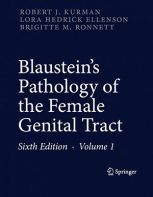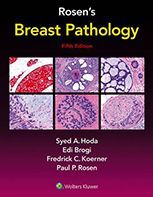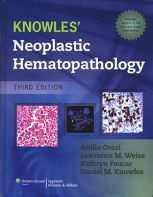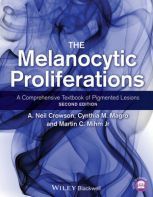Autopsy Pathology at NewYork Presbyterian/Weill Cornell Medicine encompasses full or limited post-mortem examinations on appropriately consented, deceased patients to provide knowledge on the pathology-based cause of death as well as clinicopathological correlations for our patients’ families and
The Division of Anatomic Pathology possesses 35 outstandingly qualified faculty members who provide a comprehensive range of diagnostic services with strong emphasis on the highest quality patient-care based on diagnostic accuracy, state-of-the-art technologies, and personalized service to clients. Our laboratories are fully accredited by the College of American Pathologists (CAP), the leading advocate of excellence in the practice of pathology and laboratory medicine worldwide.
Our anatomic pathology faculty are nationally and internationally recognized experts in their respective subspecialties, many of whom have set the standards for clinical practice, education, and research. Our pathologists have extensively published in leading scientific journals, and many have authored the gold-standard pathology textbooks in their area of expertise.




Our faculty provide traditional morphological examination which is typically complemented by a sophisticated array of cutting-edge ancillary testing techniques such as immunohistochemistry, flow cytometry and molecular biological techniques. We offer particular expertise in the subspecialties of breast, genitourinary, gynecological, gastrointestinal, dermatological, placental and perinatal pathology. Consultation services, including second-opinions, are provided within these subspecialties.
We invite you to learn more about the individual surgical pathology sub-specialties in the Department of Pathology and Laboratory Medicine at the NewYork Presbyterian/Weill Cornell Medicine.
Specialties
The Division of Breast Pathology at NewYork-Presbyterian/Weill Cornell Medicine is one of the largest dedicated comprehensive breast pathology services in the United States, with a consultation rate of more than 2,000 cases annually as well as some 2,800 in-house cases each year.
The Papanicolaou Cytopathology Laboratory at NewYork-Presbyterian/Weill Cornell Medicine is a full-service laboratory accredited by both the College of American Pathologists (CAP) and the Joint Commission. We provide comprehensive services to the hospital and its clinicians.
The need for high-quality dermatopathologists — doctors who specialize in the analysis and interpretation of skin biopsies — is now greater than ever. The incidence of skin cancer is rising.
NewYork-Presbyterian/Weill Cornell Medicine provides excellent care for adult and pediatric patients with gastrointestinal disorders, and is home to the Center for Advanced Digestive Care, the Center for Liver Disease and Transplantation, the Jill Roberts Center for Inflammatory Bowel Disease, th
The Division of Genitourinary Pathology at NewYork-Presbyterian/Weill Cornell Medicine features the proficiency of full-time pathologists with dedicated expertise.
The Division of Endocrine Pathology at NewYork-Presbyterian/Weill Cornell Medicine provides expert analysis of thyroid, parathyroid, and adrenal specimens, complex head and neck tissue specimens, and salivary gland tumors.
The Neuropathology Division at NewYork-Presbyterian/Weill Cornell Medicine provides expertise regarding the pathology of brain, spinal cord, muscle, and nerve tissue.
Pediatric Pathology at NewYork-Presbyterian/Weill Cornell Medicine provides expert analyses of pediatric surgical pathology and autopsy cases.
The Division of Perinatal and Obstetric Pathology at NewYork-Presbyterian/Weill Cornell Medicine is a leader in the assessment of placental specimens, with the goal of diagnosing underlying disease and explaining adverse pregnancy outcomes (such as fetal death or poor neurologic outcome).
The Renal Pathology Division at NewYork-Presbyterian/Weill Cornell Medicine is a full-service laboratory offering immunological techniques and electron microscopy for the assessment of non-neoplastic renal biopsies.
Surgical pathology encompasses the gross and microscopic examination of surgical specimens and biopsies. The practice of surgical pathology enables doctors to make a definitive diagnosis in any case where tissue is surgically or endoscopically removed from a patient.
The Thoracic Pathology Division at New York Presbyterian/Weill Cornell Medicine provides expertise in a wide variety of diagnostic interpretation, including neoplastic and non-neoplastic lung diseases, tumors of the mediastinum, and cardiac biopsies.

















